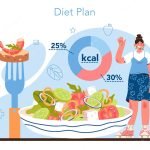![]()
Introduction
In recent years, the carnivore diet has gained significant attention in the world of nutrition and health. Proponents of this diet claim it can lead to various benefits, including weight loss and improved mental clarity. However, concerns have arisen regarding its impact on cholesterol levels. In this article, we will delve into the carnivore diet and its potential effects on cholesterol.
Understanding the Carnivore Diet
The carnivore diet is a restrictive eating pattern that primarily consists of animal products, such as meat, fish, and animal-derived fats. Followers of this diet eliminate all plant-based foods, including fruits, vegetables, grains, and legumes. The idea behind this dietary choice is to mimic the eating habits of our ancient ancestors, who relied on hunting for sustenance.
The Science Behind It
Proponents argue that the carnivore diet can lead to weight loss, improved digestion, and increased energy levels. Some even claim that it can alleviate certain health conditions, such as autoimmune diseases and digestive disorders. However, these claims are often anecdotal, and scientific evidence supporting these assertions is limited.
Cholesterol: The Good and the Bad
Before diving into the connection between the carnivore diet and cholesterol, it’s crucial to understand the different types of cholesterol. Cholesterol is a fatty substance that is essential for the body’s normal functioning. There are two main types:
LDL Cholesterol (Low-Density Lipoprotein)
Often referred to as “bad” cholesterol, high levels of LDL cholesterol are associated with an increased risk of heart disease. It can accumulate in the arteries, leading to plaque formation and potential blockages.
HDL Cholesterol (High-Density Lipoprotein)
HDL cholesterol, on the other hand, is often termed “good” cholesterol. It helps transport cholesterol away from the arteries and back to the liver for processing and elimination.
Carnivore Diet and Cholesterol Levels
One of the most significant concerns regarding the carnivore diet is its potential impact on cholesterol levels, particularly LDL cholesterol. Since this diet is high in saturated fats, critics worry that it may lead to elevated LDL cholesterol levels, increasing the risk of heart disease.
Limited Research
To date, there is a scarcity of long-term studies examining the effects of the carnivore diet on cholesterol profiles. Most of the available data come from short-term, small-scale studies or anecdotal reports from individuals who have tried the diet.
Short-Term Changes
Some short-term studies have shown that the carnivore diet can lead to an increase in LDL cholesterol levels. However, it’s essential to note that short-term changes may not necessarily translate into long-term health risks.
The Role of Genetics
It’s important to recognize that individual responses to the carnivore diet, including its effects on cholesterol, can vary significantly based on genetics. Some people may experience a substantial increase in LDL cholesterol, while others may not see a significant change.
Conclusion
In conclusion, the relationship between the carnivore diet and cholesterol levels is complex and not fully understood. While some short-term studies suggest that this diet may lead to elevated LDL cholesterol, its long-term effects remain unclear. It’s crucial for individuals considering the carnivore diet to consult with a healthcare professional and monitor their cholesterol levels regularly.
FAQs
- Is the carnivore diet safe for everyone?The safety and efficacy of the carnivore diet can vary from person to person. It’s advisable to consult with a healthcare provider before making any significant dietary changes.
- Can the carnivore diet lower cholesterol levels?While some individuals report improvements in their cholesterol profiles on this diet, there is limited scientific evidence to support this claim.
- Are there any side effects associated with the carnivore diet?Some people may experience digestive issues, nutrient deficiencies, or changes in cholesterol levels when following the carnivore diet.
- Is it necessary to take supplements on the carnivore diet?Due to the elimination of plant-based foods, some individuals may need to take supplements to ensure they get essential vitamins and minerals.
- Where can I learn more about the carnivore diet?For in-depth information on the carnivore diet, consult reputable sources and consider seeking guidance from registered dietitians or healthcare professionals.





